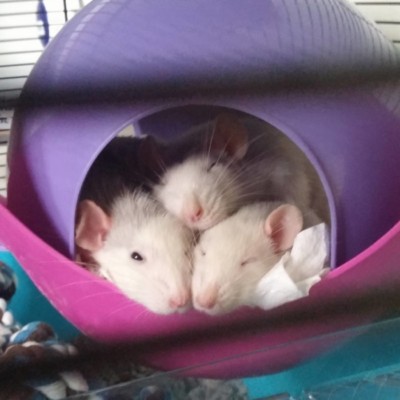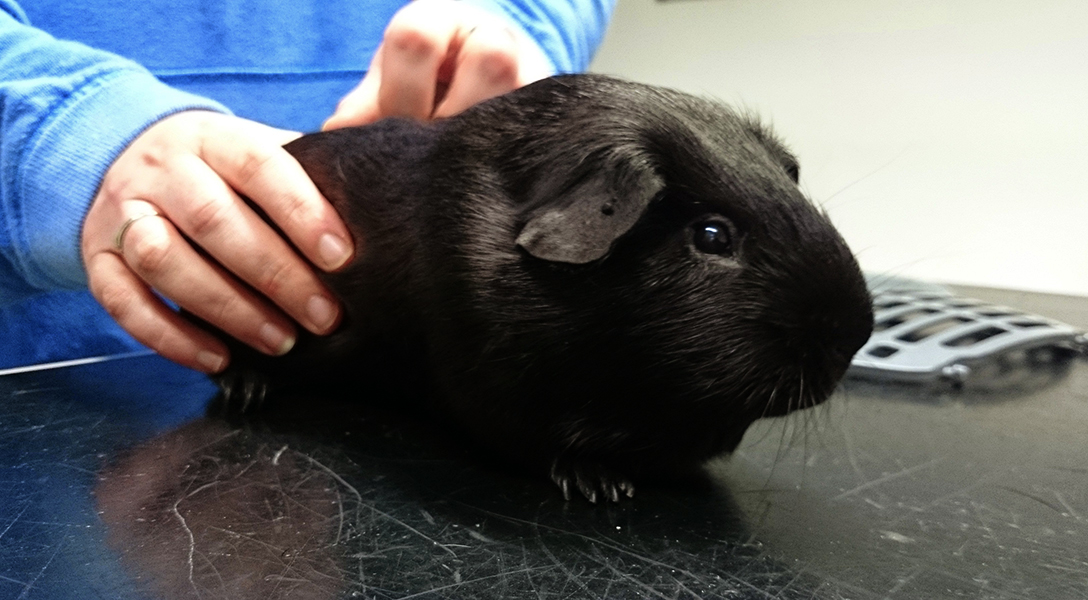
At Westport Vets, we treat small furries such as hamsters, gerbils, rats and mice, guinea pigs, ferrets and chinchillas.
Small furry species are often very good at hiding signs of pain or illness, but if you notice any behavioural changes or anything out of the ordinary, please contact us for advice or an appointment:
Please see below for a brief summary of caring advice but please feel free to contact our team to discuss further.
Choosing Your New Friend
As with all pets, it is important to do your research and ensure you are finding the right companion for you. You should always source your pets from reputable breeders. This ensures that your new friend has had the best start in life, having been cared for and well-handled.
Or if you’d like to give someone a second chance, there are many small furries in rescues looking for loving homes. Contact your local rescue centres and you might just find that special someone in need of a forever home.
Husbandry
Most small furries are kept inside the home in a cage, with access to an indoor or outdoor run. If your pet is going outdoors, it may need to be vaccinated. Please contact us for specific vaccination advice.
The cage should be suitably sized for your pet (you can use an online cage calculator to help with this). It should also have toys and enrichment suitable for the species – climbers such as rats and chinchillas like ropes, hammocks and ledges, while ground-dwellers such as guinea pigs enjoy hides and tunnels.
The bottom of the cage should be covered in a dust-extracted substrate such as paper litter or shredded cardboard. Hamsters, gerbils and rats enjoy digging, so should be given a thick layer of substrate or a ‘dig box’.
Small furries enjoy a clean environment and should have their cage cleaned out at least once a week. Some can be trained to use a litter box or a ‘pee stone’. For pets that won’t use a litter box, ‘spot-cleaning’ or ‘poo-picking’ between cage-cleans keeps their living environment cleaner for longer.

Diet
Your small furry should be fed a species-specific formulated diet supplemented with healthy treats and fresh food. Small furries can be very specific in their nutritional requirements, so it is important to research your pet’s specific dietary needs and ensure that you are providing this.
Fresh water should always be available. Water bottles should be changed daily. Water bowls should be kept clear of debris and should be washed out and changed daily.
As a short summary, Herbivores such as guinea pigs often require a diet of hay, fresh veg and a small amount of nuggets. Omnivores such as rats should eat a nugget-based diet, which can be supplemented with fresh veg, cooked meat or egg, seeds and/or a muesli mix. Ferrets are obligate carnivores and should be fed a dry ferret food, but can have cooked meat and egg as treats. With any pet, it is good to keep a list of foods they can eat and foods they can’t eat. This will help to avoid any scary trips to the vet!
Handling
Not all small furries enjoy a cuddle, however they all benefit from regular gentle handling. When picking up your pets, make sure their feet are supported and always try to scoop them rather than picking them up by their shoulders or their skin (scruffing). Tasty treats can help you build up a trusting bond with your pet.
Try not to be discouraged by nips or bites – this just means that your pet does not quite trust you enough to tolerate handling. Patient, gentle interaction increases you and your pet’s confidence with each other. However, if your animal is repeatedly aggressive towards you or its companions, this could be a sign of illness or discomfort.
Grooming
A lot of these species will typically keep themselves clean, but might need some help at times if they are feeling a little under the weather. A gentle wipe with damp cotton wool is often enough to make your pet feel much better. If a bath is necessary, make sure you use animal friendly soap or shampoo (preferably something approved for the species) and take care not to use too much.
Keeping your pet’s cage clean will help them to keep themselves clean, but don’t overclean! This can cause them distress and can encourage them to produce more of their natural scent, which will only exacerbate the problem.
Chinchillas must be provided with a ‘dust bath’ at least twice a week to help them keep their coat in tip top condition (but this can’t be left in the cage constantly – too much bathing will make them itchy!).
If you have concerns or questions about any of these topics, please contact us for advice.



